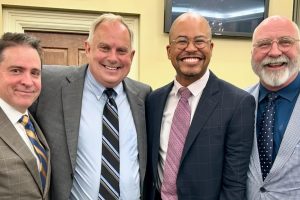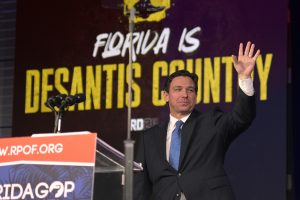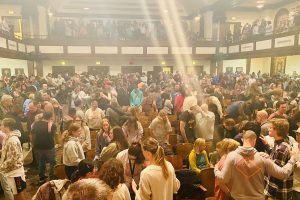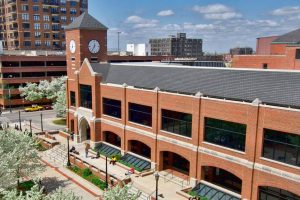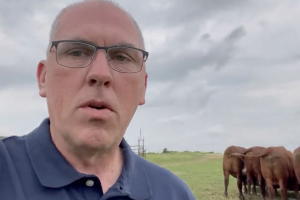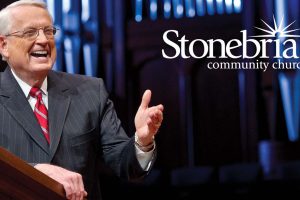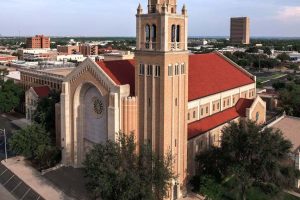 Why are we in such a rush to get to Easter Sunday? In our efforts to make Easter celebrations the most extravagant Sunday of the year, when church attendance is expected to be beyond the norm, we forget — if not outright ignore — Holy Saturday.
Why are we in such a rush to get to Easter Sunday? In our efforts to make Easter celebrations the most extravagant Sunday of the year, when church attendance is expected to be beyond the norm, we forget — if not outright ignore — Holy Saturday.
And yet, for the vast majority of the world’s disenfranchised, the marginalized occupy the space of Holy Saturday, the day after Friday’s crucifixion, and the not yet Easter Sunday of resurrection. This is a space where some faint anticipation of Sunday’s Good News is easily drowned out by the reality and consequences of Friday’s violence and brutality. It is a space where hopelessness becomes the companion of used and abused people.
The virtue and/or audacity of hope become a class privilege experienced by those protected from the realities of Friday or the opium used by the poor to numb that same reality until Sunday rolls around. Regardless of the optimism professed, the dispossessed, their children, and their children’s children will more than likely continue to live in an ever-expanding poverty caused to benefit the privileged few. Sunday seems so far away.
No doubt, the reader of this commentary might also feel a certain twinge of hopelessness. After all, we live in a world where the top 358 billionaires are wealthier than the combined annual income of countries that contain 45 percent of the world’s population; a world where the once stable predominantly white middle-class continues to slip into economic despair. Rather than looking up at those who benefit from this new global neoliberal model; we blame the poor, the immigrant, the persons of color.
Maybe for the first time, the once middle-class are correctly sensing the irremediable gulf existing between them and the economic stability of past generations, evoking feelings of helplessness and pessimism. Can anything be done to address the downwardly spiraling middle-class concerns? Quick and easy fixes may temporarily soothe one’s conscience, but it is no substitute for bringing about a more just economic social structure that isn’t based on the disenfranchisement of those already economically suffering.
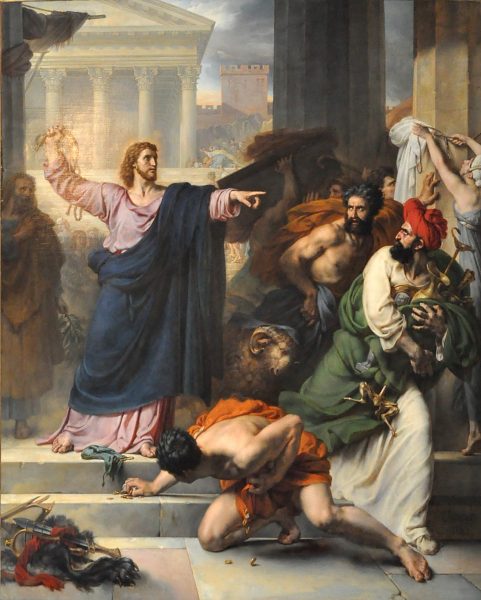
“Le Christ chassant les marchands du temple,” by Antoine Jean-Baptiste Thomas
This hopelessness which I advocate is neither despairing nor disabling; rather, it is a methodology that propels toward praxis.
All too often the advocacy of hope gets in the way of listening and learning from the oppressed. Hope, as a product of salvation history (either metaphysical or material dialectic) can be optimistically believed if we accept the arc of history does bend toward justice.
But if the past and present are any guides, the existence of such an arc is a faith statement assumed without proof. So hope, as a statement of unfounded belief can serve an important economic purpose.
Too often, however, hope becomes an excuse not to deal with the reality of injustice.
I first began to develop a theology of hopelessness when I took a group of predominately white students to the squatter villages of Cuernavaca, Mexico, to learn from the poor. During our outing we spoke with many families living in horrific conditions.
That evening, as we processed the day’s activities, one student stated that in spite of the miserable conditions in which these people lived, she still saw “the hope in the eyes of the little girls.” My immediate response was that these same little girls would more than likely be selling their bodies to put food on the table or be trapped in abusive marriages attempting to survive classism and sexism, so I wasn’t sure what kind of hope my student saw. Among the disenfranchised, the dispossessed, the least of the least, I discover an ethos where hope is not apparent.
Since that encounter, I have been wrestling with the realization that for many of the ultra-poor, hope seems to be mainly claimed by those with economic privilege as a means of distancing themselves from the unsolvable disenfranchisement that most of the world’s wretched are forced to face.
The semblance of hope becomes an obstacle when it serves as a mechanism that maintains rather than challenges the prevailing social structures. The hopelessness in vanquishing the neoliberalism is never an excuse to do nothing. It may be Saturday, but that’s no justification to passively wait for Sunday. The disenfranchised have no options but to continue their struggle for justice regardless of the odds against them. They continue to struggle, if not for themselves, but for their progeny. But how? By screwing with the structures of oppression.
When the disenfranchised join Jesus in overturning the tables at the Temple, it literally creates instability. Saul Alinsky, in his book Rules for Radicals probably said it best, “The first step in community organization is community disorganization …. Present arrangements must be disorganized if they are to be displaced by new patterns that provide the opportunities and means for citizen participation. All change means disorganization of the old and organization of the new.” (116)
An ethics that upsets the prevailing social order designed to maintain neoliberalism is an ethics that can only arise from the margins of society who are disillusioned and frustrated with normative Eurocentric values and virtues. While Euroamerican ethicists insist on social order, marginalized communities must call for social disorder. Perhaps, it might lead some within the dominant culture to share in the hopelessness of overcoming the global forces of neoliberalism. If so, it will be the only way that progress is made.
Such neoliberalism ethics can be frightening to those who are accustomed to their power and privilege because hopelessness signals a lack of control. Because those who benefit from the present social structures insist on control, sharing the plight of being vulnerable to forces beyond control will demonstrate how hope falls short. And perhaps this is the sad paradox: that hope can only be found after it is crucified and then maybe resurrected. For this is the hopelessness that was described in Paul’s admonition to imitate father Abraham who “beyond all hope believed in hope.”
This ethical approach moves toward a more subversive and radical response to oppressive structures as previously advocated by most Christian ethicists, for it refuses to play by the rules established by those who made the rules – rules that provide a space for orderly dissent that pacifies the need to vent for the marginalized but is design not to change the power relationships within the existing social structures.
We have evolved into a society that requires obtaining a permit to picket the police department from the police department for the police brutality of the police department. We have freedoms to protest, as long as it does not disrupt the social equilibrium demanded by those privileged with power, and a social equilibrium morally justified by those Euroamerican ethicists who benefit from those same structures of power.
The only way for the powerless, the marginalized, the disenfranchised, the dispossessed to radically counter the prevailing status quo is to overturn tables. If the goal of praxis is to bring about change, then it is crucial to go beyond the rules created by the dominant culture, to move beyond what is expected, to push beyond their normalized and legitimized experiences.






















